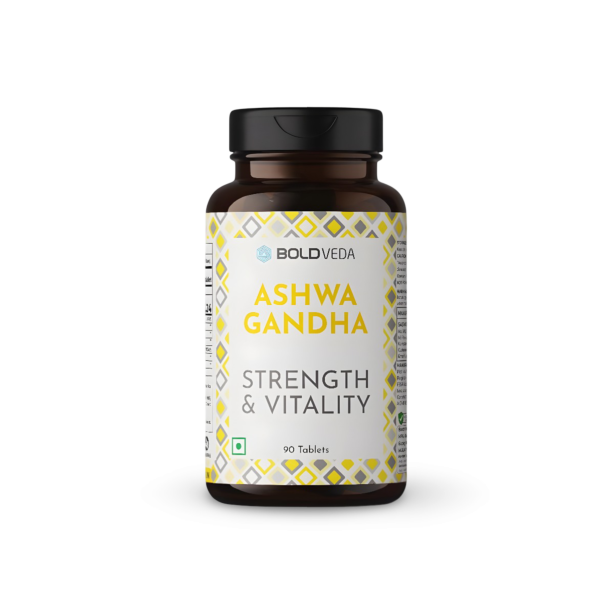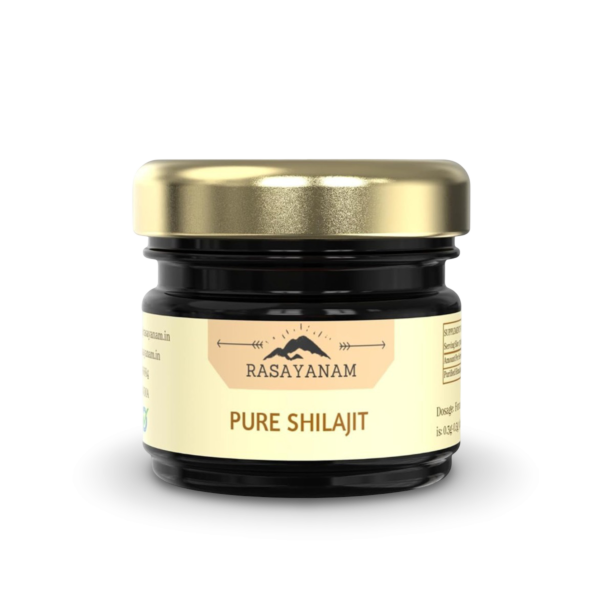Ashwagandha is a widely recognized natural herbal supplement. It has been used for centuries to increase energy, relieve stress, and achieve hormonal balance. It comes in various forms, making it easier to include in daily routines.
Like any other supplement, Ashwagandha can have side effects. The common ones are mostly mild. However, some severe but rare reactions can occur. Learning about these effects will help you use them safely.
In this article, you’ll find both common and rare side effects of Ashwagandha. We’ll also look at possible drug interactions that may add to these effects. Along the way, important considerations to remember before use and practical tips on minimizing side effects will also be discussed.
Common side effects of Ashwagandha
Ashwagandha is a typically well-tolerated medicinal herb. But it can trigger some mild side effects in some individuals. Given below are a few you might experience:
- Headache: During the initial 1-2 weeks of consuming Ashwagandha, mild to moderate headaches can occur. It typically subsides once the body adjusts to the dose and form.
- Stomach discomfort: An upset stomach, Diarrhea, and nausea are common effects related to the digestive system. These can be particularly observed if taken at a high dose or on an empty stomach.
- Dry mouth: A slight sensation of dryness in the mouth is also reported by people who take Ashwagandha. However, it is a temporary and mild effect.
- Drowsiness: Ashwagandha is known to have a relaxing and sleepy effect, which is beneficial for bedtime. However, this can slow down the body if taken during the day.
Save up to 90% on your medicine bills

Boldveda Ashwagandha Tablets

Kapiva Ashwagandha Gold Capsules

Nirvasa Ashwagandha KSM66 Gummies

Rasayanam Pure Shilajit Resin
Severe but rare side effects of Ashwagandha
Although severe side effects are generally considered uncommon, they can occur. This encounter can particularly happen when Ashwagandha is consumed for a prolonged time or in high doses. Here is what one should watch for:
- Allergic reactions: Itching, swelling, or a skin rash can occur. Caution is advised for individuals with a sensitive immune system. Consult a doctor if difficulty in breathing is experienced.
- Autoimmune triggers: Clinical reports suggest that Ashwagandha can stimulate the immune system. This indicates that this herb can worsen symptoms in people with autoimmune diseases, such as Lupus.
- Liver injury: Rare cases of damage to the liver have been observed, with a few requiring immediate medical attention. Therefore, it is suggested to stop the use and consult a doctor first if symptoms like abdominal pain and/or Jaundice occur.
- Imbalance of Thyroid hormone: Ashwagandha has proven activity in increasing levels of Thyroid hormone. This can worsen Thyroid conditions, if one has any. Consider monitoring the hormone levels under medical supervision.
Who should avoid Ashwagandha
Ashwagandha offers numerous benefits for both men and women. Still, this natural remedy is not suitable for everyone. The groups given below should either consult a doctor before using it or altogether avoid it:
- Pregnancy and breastfeeding: Several clinical reports have advised against using Ashwagandha during pregnancy and breastfeeding. Its safety profile is still unclear for these two phases.
- Scheduled surgery: In case of any upcoming surgeries, stop taking Ashwagandha two weeks before. This is due to its known interaction with anesthesia.
- Liver disease: As discussed before, liver injuries have been reported in some individuals using this herb. A doctor’s consultation is advised, or avoid using it if there are existing liver issues.
- Allergy: The findings of research published by Pharmaceutics in 2023 suggest that treatment with Ashwagandha is contraindicated for individuals with an allergy to the solanaceae family.
Drug interactions of Ashwagandha
Ashwagandha can interact with certain medications, potentially triggering side effects. So, always consult a healthcare provider if you are on any medication. Listed below are potential interactions:
- Immunosuppressants: Ashwagandha can interact with and reduce the effectiveness of medicines prescribed for the immune system.
- Blood pressure medications: Ashwagandha can increase the effects of these medicines by triggering a drop in blood pressure.
- Sedatives: Taking sedatives in combination with anti-anxiety or sleeping pills can elevate the drowsiness effect.
- Thyroid medications: As mentioned earlier, Ashwagandha can impact Thyroid hormone levels. In turn, this can significantly affect medication treatment.
How to minimize the side effects of Ashwagandha
If you are worried about side effects, here are simple tips to control or prevent them:
- Purity of supplement: Be cautious while choosing Ashwagandha products. Consider reputable brands only, since some products may be contaminated and cause side effects.
- Take with food: To prevent side effects such as nausea and stomach discomfort, take Ashwagandha with food or with milk/juice.
- Dosage: Start with a low dose, typically 250-600 mg, and gradually increase if needed. Taking high amounts straight away results in increased side effects.
- Monitor your body: Stop using it if unusual symptoms, like stomach pain or rash, appear, and seek professional advice.
- Consult a doctor: Medical consultation is recommended for anyone experiencing a medical condition and taking medication to manage it. Timely intervention prevents unwanted effects.
Conclusion
Ashwagandha is a well-known herbal supplement known for its numerous health benefits. However, like any other health supplement, it comes with potential side effects and precautions. Common unwanted effects, such as drowsiness, mild headaches, or dry mouth, are generally temporary and manageable. However, severe effects, like allergic reactions or liver injury, are rare but should be addressed immediately.
Certain groups, including breastfeeding and pregnant women and people with autoimmune diseases or liver issues, should consult a doctor before use. Precaution is advised, as Ashwagandha can interact with various medications, like immunosuppressants. Start with a low dose and choose the correct brand for safe use. These considerations ensure that Ashwagandha can be incorporated safely and effectively into a wellness routine.

Frequently Asked Questions
Can Ashwagandha increase testosterone?
Yes, Ashwagandha can increase testosterone levels, especially in men. Several studies reported improvements in testosterone, with an increase of 14.7% after consistent use of Ashwagandha pills or capsules for several weeks. It has also been reported to enhance sexual function and sperm quality in men.
Is Ashwagandha good for the heart?
Yes, Ashwagandha is good for the heart as it helps protect heart muscles from potential damage. It also has anti-inflammatory properties, making it a beneficial supplement for cardiovascular health by lowering inflammation.
Is Ashwagandha risky for the long term?
No, Ashwagandha’s long-term safety is not well established. It is considered safe for up to 3 months. Some rare but severe side effects, including liver injury, have been observed with high-dose or prolonged use.
Can Ashwagandha cause weight loss?
Yes, Ashwagandha can indirectly cause weight loss. It lowers cortisol levels, which helps control stress, which is often associated with weight gain. Ashwagandha also enables lean muscle growth, which increases calorie burning even at rest.
When referencing outside resources, GoodrxMedicine always provides full citations. To learn more about the measures we use to maintain the quality of our content, please review our Content Information Policy.











